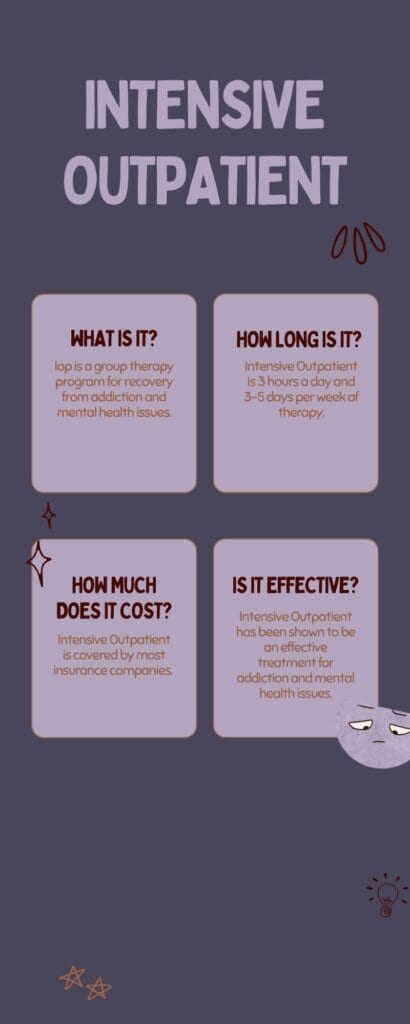The Future of Mental Health Treatment: Advancements in Massachusetts Intensive Outpatient Programs
Advancements in Massachusetts intensive outpatient programs are helping us identify gaps in mental health treatment. Because when you look closely at the statistics, mental illnesses are costing the global economy more than $1 trillion every year.
Of course, when it comes to our health, money shouldn’t be a concern; however, financials are a factor to consider, nevertheless, when pursuing mental health treatment.
Over 200 million workdays, costing $17 to $44 billion to employers, were lost due to mental health conditions in the United States; and that was before COVID-19 hit. This is in no way a good news for neither the patients nor their careers and mental, physical, or familial health.
Thankfully, we live in a tech-based world where a lot of research and development is gifting us with powerhouse advancements. These advancements are empowering us to see better and faster results while also cutting down the risks significantly associated with different forms of treatment.
How, and what are these advancements in mental health treatment, you ask?
That’s exactly what we’ll be covering ahead, so stick around to discover the future of intensive mental health treatment in Massachusetts’ outpatient programs.
Top 3 Advancements In Mental Health Treatment
1. Rapid Acting Alternatives To Treatment-Resistance
Antidepressants, although super effective for millions, have a couple of drawbacks. One, while they suppress negative emotions, they also hinder the person’s ability to enjoy the highs of life.
Second, which is the worst of the two, is that about one-third of the patients are treatment-resistant. You would understand why we rated it the worst because imagine when a person needs immediate crisis intervention and the treatment isn’t working on them…
The good news is that the psychedelic Ketamine was greenlighted by the FDA in 2020 as a rapid-acting antidepressant for depression treatment. Its administration in just a few sessions is found to diminish the symptoms of depression as well as suicidal tendencies in just a few hours.
Ketamine, as well as other psychedelics – such as psilocybin, LSD, and mescaline – work by stimulating neuroplasticity.
Neuroplasticity is the brain’s ability to rewire itself when exposed to suitable triggers. The idea behind psychedelics and neuroplasticity is that when the patient is administered the medicine, their brain will enter a highly receptive state.
Now, with proper guidance, their neural networks can be directed towards growth and reorganization. The psychedelics put them in a much more fluid state where they can respond more positively to their health professional’s guidance.
2. Better Insurance Coverages For Mental Illnesses
Less than a couple of decades ago, insurance didn’t have a wider scope. This meant more out-of-pocket costs as well as minimal or no insurance coverage for several mental health treatments and substance use disorders (SUDs).
However, with the passage of the Mental Health Parity & Addiction Equity Act (MHPAEA) in 2008, acquiring equitable insurance coverage for treating mental illnesses and SUDs became a whole lot easier.
The MHPAEA Act eliminated (or at least reduced) financial barriers set by many insurance plans such as annual and lifetime dollar limits, the type of treatments you could receive, and copayment options amongst other restrictions.
So, with the MHPAEA Act, the coverage scope of insurance was expanded to include the following:
- Behavioral Health Treatments – covering various therapies like cognitive-behavioral therapy, psychotherapy, and addiction counseling.
- Medication Management – covering psychiatric medications used to treat mental health conditions and substance use disorders.
- Inexpensive Outpatient Services – which reduced the reliance on expensive inpatient stays.
However, MHPAEA had its limitations – it didn’t apply to individuals and the plans for smaller groups.
That’s beside the fact that 26 million people in the United States don’t have any insurance at all, according to the 2023 report from the Census Bureau.
But with a foothold set by MHPAEA, the Affordable Care Act soon followed – which offers guaranteed coverage for mental health recovery in intensive outpatient and in-patient care in the various states of the United States, including Massachusetts.
The Affordable Care Act provides treatment coverage for individuals, small groups, and Medicaid expansion plans.
Granted, even this insurance plan has its limitations, but there are more and better insurance plans to come in the future that we can look forward to such as Parity Enforcement and value-based care models.

3. There’s Truth To “Getting A Gut Feeling”
Have you ever felt butterflies in your stomach, or have heard people repeatedly say the phrase to trust your gut? Turns out, there’s actually some truth to all these phrases.
Scientists believe that just as our brain sends signals to our body and its organs to carry out their functions, the organs also respond back with their information.
However, our gut – which is primarily the stomach and intestines – has over 100 million neurons which are lining its walls.
These are the same neurons that are found in our brains!
So, thinking from your gut is a very real thing; consequently, if there are any problems in the brain, they can exacerbate the symptoms in the gut. So, if a person is facing symptoms such as anxiety or depression, it can worsen conditions like irritable bowel syndrome.
Similarly, a problem in the gut can exacerbate the symptoms in the brain.
This is because our gut consists of proteins called Cytokines, which controls the activity of immune system cells and blood cells. In a condition, called Gut Microbiota, microbes protecting the gut wall allow the Cytokines to slip into our bloodstream.
As long as the Cytokines are inside the gut, everything is good; but once in the bloodstream, they may reach the brain and cause an inflammation in the brain, so now things are bad.
Therefore, treating problems of the gut solves the issues in the brain.
That’s not all; about 95% of the body’s supply of Serotonin is produced in the gut. Serotonin controls our mood, desire, digestion, bone health, and much more.
So, to cure mental health, looking beyond the brain (such as in the gut) has become one of the most trending advances in the world of mental health treatment at intensive outpatient care in Massachusetts.
More Advances Yet To Come
We have only covered 3 of the top advances in the field of mental health treatment, and there are numerous more that we see in this fast-evolving world.
Like one of our favorites – the use of digital data, AI, and machine learning to predict mental health symptoms. Imagine if you can predict with 84% accuracy that a patient admitted for self-harm will attempt suicide within the coming week. That’s what data and machine learning can do for you!
You can read more on some of these trends, in the world of mental health treatment, by clicking here.
And if you’d like to get a tour of Massachusetts’ facilities, offering mental health intensive outpatient service, and observe these advances yourself, give Resilience Behavioral Health a call at 888.401.1179.
We are excited to showcase the latest tech and gadgets we just got our hands on, you just can’t miss out on these.
Get in touch right now with Resilience Behavioral Health to find out more!


